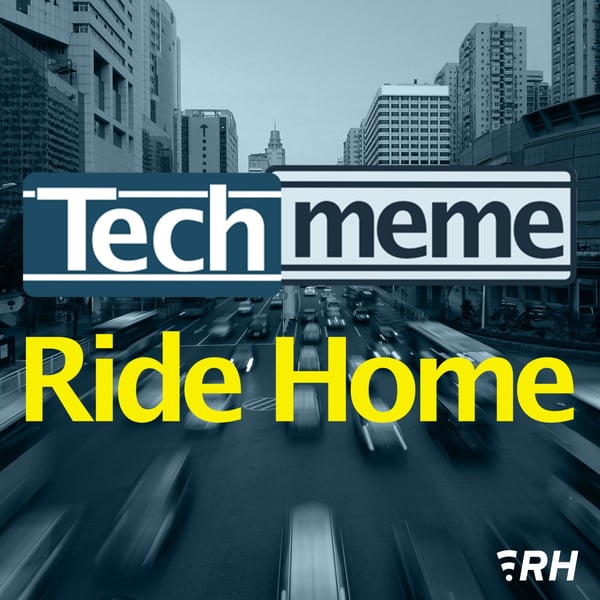Fri. 04/18 – The Google Antitrust Snowball
Techmeme Ride Home
Brian McCullough
4.7 • 984 Ratings
🗓️ 18 April 2025
⏱️ 20 minutes
🧾️ Download transcript
Summary
Google is ruled an illegal monopoly. Again. But for a different reason this time. Switch 2 pre-orders are back on. Americans are flocking to Temu and Shein alternatives. And in the Weekend Longreads Suggestions, what if I told you 25 percent of community college applicants are now AI bots? And not only that, the bots are now “attending classes” in quotes.
Sponsors:
- FactorMeals.com/ride50off and code ride50off
Links:
- Google Broke the Law to Keep Its Advertising Monopoly, a Judge Rules (NYTimes)
- Google loses online advertising monopoly case (Axios)
- Google Found GUILTY of Monopolization Again (The Big Newsletter)
- Nintendo Switch 2 preorders start April 24th and the price is still $449.99 (The Verge)
- The latest viral ChatGPT trend is doing ‘reverse location search’ from photos (TechCrunch)
- Chinese shopping app Taobao joins DHgate in Top 5 on US App Store (TechCrunch)
Weekend Longreads Suggestions:
- As ‘Bot’ Students Continue to Flood In, Community Colleges Struggle to Respond (Voice Of San Diego)
- Astronomers Detect a Possible Signature of Life on a Distant Planet (NYTimes)
See Privacy Policy at https://art19.com/privacy and California Privacy Notice at https://art19.com/privacy#do-not-sell-my-info.
Transcript
Click on a timestamp to play from that location
| 0:00.0 | Oh, welcome to the Tech meme right home for Friday, April 18, 25. I'm Brian McCullough today. Google is ruled an illegal monopoly again. But for a different reason this time. |
| 0:14.0 | Switch to pre-orders are back on. Americans are flocking to Temu and Shian alternatives. And in the weekend, long-read suggestions, what if I told you 25% of community college applicants |
| 0:23.6 | are now AI bots? |
| 0:25.6 | And not only that, the bots are now, quote, attending classes. |
| 0:29.6 | Here's what you miss today in the world of tech. |
| 0:35.6 | Well, it's happened again. |
| 0:36.6 | A U.S. judge says Google acted illegally to maintain a monopoly in |
| 0:41.3 | some online advertising tech. This is the second time in a year a court has found Google acted |
| 0:47.7 | illegally in a monopolistic context, though this time it is different from last time, quoting the times. |
| 0:55.2 | Judge Leone Brinkama of the U.S. District Court for the Eastern District of Virginia said in a |
| 1:00.7 | 115-page ruling that Google had broken the law to build its dominance over the largely |
| 1:05.1 | invisible system of technology that places advertisements on pages across the web. |
| 1:09.5 | The Justice Department and a group of states had sued Google, arguing that its monopoly and |
| 1:14.0 | ad technology allowed the company to charge higher prices and take a bigger portion of each |
| 1:18.2 | sale. In addition to depriving rivals of the ability to compete, this exclusionary conduct |
| 1:23.9 | substantially harmed Google's publisher customers, the competitive process, and ultimately |
| 1:27.8 | consumers of information on the open web. Judge Brinkama said. The government argued in its case that |
| 1:33.8 | Google had a monopoly over three parts of the online advertising market. The tools used by online |
| 1:38.3 | publishers like new sites to host open ad space, the tools advertisers used to buy that |
| 1:43.1 | ad space, and the software that facilitates |
| 1:45.3 | those transactions. Judge Brinkema ruled in the government's favor in two of those, finding that |
| 1:50.9 | Google illegally built a monopoly over publisher tools and the software system. She dismissed the |
... |
Please login to see the full transcript.
Disclaimer: The podcast and artwork embedded on this page are from Brian McCullough, and are the property of its owner and not affiliated with or endorsed by Tapesearch.
Generated transcripts are the property of Brian McCullough and are distributed freely under the Fair Use doctrine. Transcripts generated by Tapesearch are not guaranteed to be accurate.
Copyright © Tapesearch 2025.

